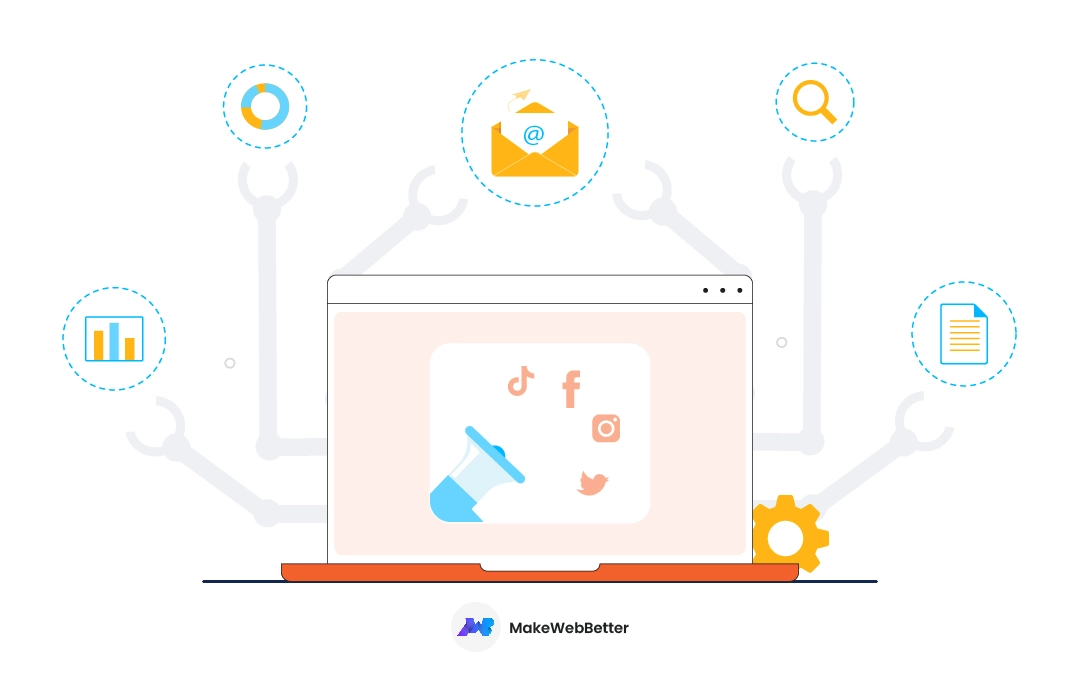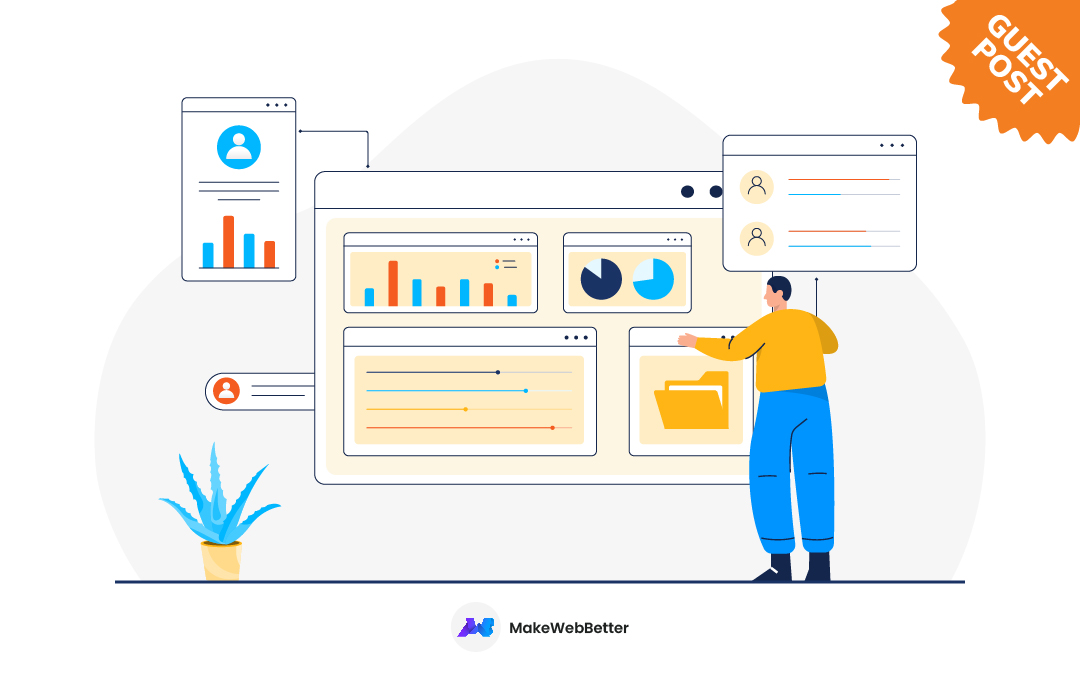HubSpot has been helping businesses reaching milestones they only dreamt of.
This post is one success story of Servicedirect.com.
We interviewed Matt Buchanan, the Co-founder of Service Direct & he shared his brand’s experience with HubSpot.
So let’s get to the point.
HubSpot helped Service Direct:
- Increase the average ticket price paid by their clients by 13%
- Increase product SKU upsells by our sales team by 20%
- Reduce poor performing client answer rates by 37%
- Increase customer ‘Happy’ ratings by 43% while decreasing our ‘Unhappy’ ratings by 61%
To Start, Tell Us a Little Bit About Service Direct…
Service Direct helps service businesses that are looking to grow by offering local lead generation solutions designed to generate quality, exclusive leads from new potential customers, in real-time.
Service Direct’s unique approach combines 15+ years of hyperlocal advertising experience, proven proprietary technologies with the added benefit of pay per lead pricing, making our local lead generation solutions a cost-effective, low-risk way to get more leads that turn into customers.
Why Did You Decide to Move to HubSpot? Did You Look at Other CRMs?
We were at the point where we were probably using north of 10 different software tools to try and manage various aspects of our business.
It was a complete mess and was definitely having a negative impact on our ability to provide a great product and service to our clients as well as negatively impacting the happiness of our employees.
It was clear we needed to invest in a total CRM solution to help us better manage every aspect of our business. We spent considerable time investigating both HubSpot and Salesforce. Ultimately, we felt HubSpot was a better fit for our business for a few reasons:
-
Ease of Customization
We knew we eventually wanted to do some pretty complex things with our CRM and it seemed like those customizations were very difficult to effectively implement with Salesforce. To the point where we’d need to hire an outside expert to help us when we wanted to customize it to our needs. With HubSpot, we knew it could do everything we eventually wanted it to do, but we had more confidence in our own ability to manage those customizations.
-
Marketing-centric
We have always focused our growth efforts on inbound marketing efforts (as opposed to being a heavily outbound sales-centric company). That approach is heavily imprinted in HubSpot’s DNA and a perfect fit for us. On the other hand, Salesforce added a lot of utility for sales-centric companies but ultimately had a lot of bells and whistles that our business would never need, which meant we’d have to add Pardot as well.
-
Right Price/Value
We were always going to choose the system that provided the most value for us as a company, but it didn’t hurt that not only was HubSpot the clear winner for us in that regard, it was considerably less expensive than the same level of implementation for Salesforce/Pardot.
What Impact Did the Move to HubSpot Have for Your Business Initially?
The biggest early impact was that it became our ‘source of truth’ for so many business questions we had. Prior to HubSpot, we might have to look at 2-3 different tools to try and answer a question where invariably we would get 3 different answers.
With HubSpot, we finally had the right answer, which then allowed us to make more informed, confident decisions as a business.
Also, having information more readily available made our employees more productive, not to mention happier. They were engaged in more meaningful work as opposed to tedious, oftentimes annoying work trying to make sense of chaos.
What Sort of Challenges Has HubSpot Helped You Solve?
Oh goodness… the internet isn’t big enough to store everything we could add here.
When looking at it from a 30,000 foot view, here are the major themes of problems/challenges HubSpot has helped us solve:
-
Integrated Customer Lifecycle Experience
Prior to HubSpot, the customer lifecycle experience was completely disjointed and most certainly didn’t make sense to prospective customers and customers alike. Using various tools to try and market to them, then using different tools to try and service and upsell existing clients, provided a poor experience for both the customer and our company. There was no uniformity in our process and as a result, that experience wasn’t as pleasant.
With HubSpot, we are able to provide a seamless experience throughout the lifecycle of a customer. All of our analytics, interactions, messaging, etc. is housed in one place, allowing us to provide a more thoughtful and customized experience for our clients.
-
Business Flexibility
As our business evolves, our processes and the resources we bring to bear change as well. HubSpot provides the flexibility we need to allow our CRM to evolve with us, allowing us to iterate faster without missing a beat.
As an example, we have made wholesale changes in our Sales team and processes. That required us to rethink how we wanted HubSpot to empower that department. Had we been on multiple systems, that type of overhaul simply wouldn’t have been possible.
Having the flexibility to change course and know that there are really no constraints in those changes with our CRM allows us to evolve more quickly and allows us to provide a better product/service to our clients. That in turn gives us an advantage over our competitors.
-
Better Data Insights
Prior to HubSpot, trying to get answers to simple business questions was, at best, time consuming and challenging and, at worst, impossible. That lack of insight can be paralyzing for a business. It certainly was for us, as we were never certain if our decisions were the right ones to make because we never had confidence we were looking at the issue with the right data lens.
With HubSpot, we can pipe whatever data we want into it and build real-time reporting that allows our employees to find answers to their questions easily.
-
Automation. Automation. Automation.
Perhaps the biggest problem HubSpot has solved for us has been the ability to automate so many tasks, actions, communications, etc. based on our data signals. Prior to HubSpot, a team member would spend several minutes looking in multiple places trying to figure out what was going on with a particular customer, then several more minutes fashioning communication specific to that customer situation.
Now, most of that data discovery and personalized communications can be completely automated. That not only means our system is able to identify and address issues more quickly/accurately, it means our team members have time to focus on more meaningful work that can improve the outcomes for our clients.
What Have Been the Biggest Challenges You’ve Faced Implementing HubSpot into Your Company’s Operations?
I think the biggest challenge we have faced implementing HubSpot has been putting process and structure around how to build it to meet our business needs.
In other words, some of HubSpot’s greatest assets also present challenges. Namely, it’s really easy to use and it’s really powerful. Once our employees started to see the way custom fields and workflows could tackle so many issues for them, they started to add fields and workflows. Pretty quickly, we had somewhere around 700 HubSpot workflows, built by a dozen different people.
That’s great, but has also created challenges for us as a business. Sometimes workflows are duplicative, other times workflows are still firing by accident. Sometimes one workflow negatively impacts another, while oftentimes employees aren’t certain what workflow caused certain actions to take place in HubSpot.
So we are in the process of putting organizational structure around how we use HubSpot, such that we can get answers to questions we have about workflows, have a standardize process around building and editing workflows, and ultimately making sure HubSpot workflows are doing what we want them to do in the cleanest way possible. It’s a massive process paying down this level of accrued operational debt, but will make us a better company once complete.
What Impact Has HubSpot Had on Your Employees’ Work?
They’re happier.
Before HubSpot, much of our employees’ time was spent doing tedious, repetitive work. Not only that, for our Support team, much of their time was spent retroactively addressing problems once they were brought to our attention by the customer.
But now, HubSpot is able to perform so many of those tedious tasks, allowing our team members to spend time engaged with work that will have a bigger impact on our customers and our business. Not only that, but because we have better insight into the data signals and can respond to those in real-time, we are able to proactively address problems. This makes our customers happy, and obviously making our customers happy makes our Support team happy.
For our executives, we now have a better sense for where we stand as a business, and can easily zoom in on specific aspects of the business to better understand where we can improve.
What Sort of Results Have You Seen since Implementing HubSpot?
It’s hard to even think about us as a company before HubSpot.
We are just a smarter, more intuitive, and more nimble organization. We’ve touched on a lot of the qualitative impacts HubSpot has had on us as a business but we recently blogged about the results we saw once we pumped our proprietary data into HubSpot via its API. While it is in no way an exhaustive look at the results HubSpot has had for us, we think the results below speak for themselves:
- We were able to increase the average ticket price paid by our clients by 13%
- We reduced poor performing client answer rates (basically clients that weren’t answering the phone and therefore seeing any value of our service) by 37%
- Increased our customer ‘Happy’ ratings by 43% while decreasing our Customer ‘Unhappy’ ratings by 61% by shifting from a reactive to a proactive support team
- Increased product SKU upsells by our sales team by 20%
- Increased percentage of active campaigns (meaning active clients buying leads in our Marketplace) by 23%
What Advice Would You Give Companies Considering HubSpot as the CRM?
Do it. If you are struggling with the cost component of moving to HubSpot, I’d challenge you to think about how much unlocked potential exists within your company. If you know intuitively you’re hamstrung by your existing tooling, and you are confident in your ability to unlock that value, then there is no doubt HubSpot makes financial sense for your business.
I’d also mention that if you aren’t certain you can unlock so much of what makes HubSpot powerful, that you consider bringing in an outside agency that has experience unleashing the power of HubSpot for businesses like yours. After all, you don’t want to buy a Ferrari only to put it around in the slow lane.
I’d also tell companies to move as quickly as possible to integrating whatever proprietary data you have that lives elsewhere into HubSpot. Their API is simple to use and in our experience, the real magic happens when you give HubSpot data so that it can take actions on that data.
There’s a Perception in the Market That Moving to HubSpot Is Quite Complex. Would You Agree with It?
HubSpot can be as simple or as complex as you make it.
For us, the onboarding process was rather smooth. We had an HubSpot onboarding specialist that helped us for the first couple of months while we got our feet underneath us. Then overtime, we customized it for our business. That’s not a process that happens all at once, but rather organically over time as you identify business needs and put HubSpot to work to help solve them.
How Easy or Difficult Was It for Your Team to Embrace HubSpot in the Beginning?
Very easy, but again we were all at a point of near exhaustion trying to manage the dozen or so different tools we were using. We were desperate for a long-term solution, and once our team started to sync their teeth into how HubSpot worked, the light started to click for them. Now a “wouldn’t it be cool if we could do X, Y, Z” moment could be actionable. While initially we might not have been able to do all of the things we dreamed up, we could see that it would be possible with HubSpot.
Over to You…
HubSpot has a great potential to spring up your leads, conversions, customer satisfaction and the same time. Adding to that, it can also eliminate the silos in your team and help you collaborate more easier with your team for a single task.
So if you’re also think that you’ve not unlocked your HubSpot CRM’s potential to max, just let us know.
We’ll audit your HubSpot, find and eliminate the bottlenecks and if required, customize it.
Unlock Your HubSpot’s Potential to Max
Get a FREE HubSpot Audit that helps you identify the loopholes in your software.
P.S. This is only a Servicedirect’s success story. They didn’t hire our services & we don’t claim any sort of credit for their results.










